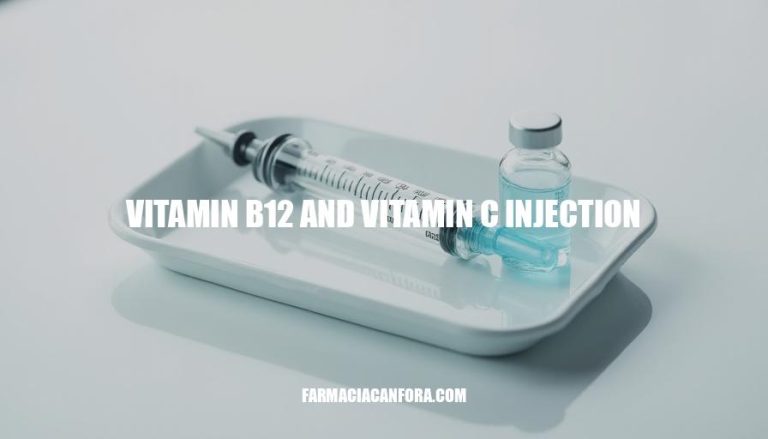


Vitamin B12 injections help people who don’t get enough of this important nutrient. This can happen if you have conditions like pernicious anemia or problems with your digestive system. It’s also a problem for people who follow very restrictive diets.
Vitamin B12 is vital for making red blood cells, building DNA, and keeping your nervous system healthy. When you inject it, the vitamin goes straight into your bloodstream, which is helpful if you have trouble absorbing nutrients.
Vitamin C injections are used to quickly boost ascorbic acid levels in people who are severely deficient or need high doses that they can’t get from food. Vitamin C helps build collagen, supports your immune system, and protects cells from damage.
Injections give you a quick fix by delivering the vitamin directly into your bloodstream.
Vitamin B12 injections are highly effective in treating deficiencies caused by conditions such as pernicious anemia, gastrointestinal disorders, or dietary restrictions like veganism. They support red blood cell production, DNA synthesis, and nerve function, preventing symptoms like fatigue, weakness, and neurological issues. Vitamin C injections, on the other hand, are beneficial for individuals with severe deficiencies or conditions that impair absorption.
They enhance immune function, promote collagen synthesis for skin and tissue repair, and act as powerful antioxidants, protecting cells from oxidative stress.
Vitamin B12 injections are typically administered intramuscularly, often in the upper arm or thigh. The dosage and frequency depend on the severity of the deficiency, with initial doses given multiple times a week, followed by maintenance doses every few months. Vitamin C injections are also administered intramuscularly or intravenously, depending on the required dosage and the patient’s condition.
Both types of injections should be administered by a healthcare professional to ensure proper technique and dosage.
Safety precautions include using sterile equipment, monitoring for allergic reactions, and avoiding self-administration unless explicitly trained and instructed by a healthcare provider. Regular blood tests are recommended to monitor levels and adjust treatment as needed. It is essential to follow professional guidelines and consult a healthcare provider for personalized advice and treatment plans.
Vitamin B12 injections are highly effective in treating deficiencies caused by conditions such as pernicious anemia, gastrointestinal disorders, or dietary restrictions like veganism. They support red blood cell production, DNA synthesis, and nerve function, preventing symptoms like fatigue, weakness, and neurological issues.
Vitamin C injections, on the other hand, are beneficial for individuals with severe deficiencies or conditions that impair absorption. They enhance immune function, promote collagen synthesis for skin and tissue repair, and act as powerful antioxidants, protecting cells from oxidative stress.
Both types of injections should be administered by a healthcare professional to ensure proper technique and dosage. Safety precautions include using sterile equipment, monitoring for allergic reactions, and avoiding self-administration unless explicitly trained and instructed by a healthcare provider. Regular blood tests are recommended to monitor levels and adjust treatment as needed.
It is essential to consult a healthcare provider for personalized advice and treatment plans, following professional guidelines to ensure the safe and effective use of vitamin B12 and Vitamin C injections.